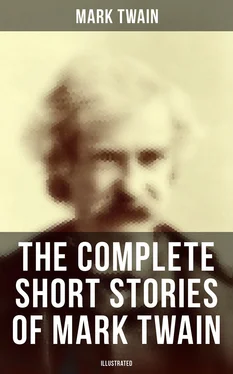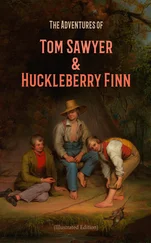Young George Washington was actuated in all things by the highest and purest principles of morality, justice, and right. He was a model in every way worthy of the emulation of youth. Young George was always prompt and faithful in the discharge of every duty. It has been said of him, by the historian, that he was always on hand, like a thousand of brick. And well deserved was this compliment. The aggregate of the building material specified might have been largely increased— might have been doubled, even—without doing full justice to these high qualities in the subject of this sketch. Indeed, it would hardly be possible to express in bricks the exceeding promptness and fidelity of young George Washington. His was a soul whose manifold excellencies were beyond the ken and computation of mathematics, and bricks are, at the least, but an inadequate vehicle for the conveyance of a comprehension of the moral sublimity of a nature so pure as his.
Young George W. was it surveyor in early life—a surveyor of an inland port—a sort of county surveyor; and under a commission from Governor Dinwiddie, he set out to survey his way four hundred miles through trackless forests, infested with Indians, to procure the liberation of some English prisoners. The historian says the Indians were the most depraved of their species, and did nothing but lay for white men, whom they killed for the sake of robbing them. Considering that white men only travelled through the country at the rate of one a year, they were probably unable to do what might be termed a land-office business in their line. They did not rob young G. W.; one savage made the attempt, but failed; he fired at the subject of this sketch from behind a tree, but the subject of this sketch immediately snaked him out from behind the tree and took him prisoner.
The long journey failed of success; the French would not give up the prisoners, and Wash. went sadly back home again. A regiment was raised to go and make a rescue, and he took command of it. He caught the French out in the rain, and tackled them with great intrepidity. He defeated them in ten minutes, and their commander handed in his checks. This was the battle of Great Meadows,
After this, a good while, George Washington became Commander-in-Chief of the American armies, and had an exceedingly dusty time of it all through the Revolution. But every now and then he turned a Jack from the bottom and surprised the enemy. He kept up his lick for seven long years, and hazed the British from Harrisburg to Halifax—and America was free! He served two terms as President, and would have been President yet if he had lived—even so did the people honour the Father of his Country. Let the youth of America take his incomparable character for a model, and try it one jolt, anyhow. Success is possible—let them remember that—success is possible, though there are chances against it.
"I could continue this biography with profit to the rising generation, but I shall have to drop the subject at present, because of other matters which must be attended to.
A Touching Story of George Washington's Boyhood
Table of Contents
If it please your neighbour to break the sacred calm of night with the snorting of an unholy trombone, it is your duty to put up with his wretched music and your privilege to pity him for the unhappy instinct that moves him to delight in such discordant sounds. I did not always think thus: this consideration for musical amateurs was born of certain disagreeable personal experiences that once followed the development of a like instinct in myself. Now this infidel over the way, who is learning to play on the trombone, and the slowness of whose progress is almost miraculous, goes on with his harrowing work every night, uncursed by me, but tenderly pitied. Ten years ago, for the same offence,I would have set fire to his house. At that time I was a prey to an amateur violinist for two or three weeks, and the sufferings I endured at his hands are inconceivable. He played "Old Dan Tucker," and he never played anything else; but he performed that so badly that he could throw me into fits with it if I were awake, or into a nightmare if I were asleep. As long as he confined himself to "Dan Tucker," though, I bore with him and abstained from violence; but when he projected a fresh outrage, and tried to do "Sweet Home," I went over and burnt him out. My next assailant was a wretch who felt a call to play the clarinet. He only played the scale, however, with his distressing instrument, and I let him run the length of his tether also; but finally, when he branched out into a ghastly tune, I felt my reason's deserting me under the exquisite torture, and I sailed forth and burnt him out likewise. During the next two years I burned out an amateur cornet player, a bugler, a bassoon-sophomore, and a barbarian whose talents ran in the base-drum line.
I would certainly have scorched this trombone man if he had moved into my neighbourhood in those days. But as I said before, I leave him to his own destruction now, because I have had experience as an amateur myself, and I feel nothing but compassion for that kind of people. Besides, I have learned that there lies dormant in the souls of all men a penchant for some particular musical instrument, and an unsuspected yearning to learn to play on it, that are bound to wake up and demand attention some day. Therefore, you who rail at such as disturb your slumbers with unsuccessful and demoralizing attempts to subjugate a fiddle, beware! for sooner or later your own time will come. It is customary and popular to curse these amateurs when they wrench you out of a pleasant dream at night with a peculiarly diabolical note; but seeing that we are all made alike, and must all develope a distorted talent for music in the fullness of time, it is not right. I am charitable to my trombone maniac; in a moment of inspiration he fetches a snort, sometimes, that brings me to a sitting posture in bed, broad awake and weltering in a cold perspiration. Perhaps my first thought is, that there has been an earthquake; perhaps I hear the trombone, and my next thought is, that suicide and the silence of the grave would be a happy release from this nightly agony; perhaps the old instinct comes strong upon mo to go after my matches; but my first cool, collected thought is, that the trombone man's destiny is upon him, and he is working it out in suffering and tribulation; and I banish from me the unworthy instinct that would prompt me to burn him out.
After a long immunity from the dreadful insanity that moves a man to become a musician in defiance of the will of God that he should confine himself to sawing wood, I finally fell a victim to the instrument they call the accordeon. At this day I hate that contrivance as fervently as any man can, but at the time I speak of I suddenly acquired a disgusting and idolatrous affection for it. I got one of powerful capacity, and learned to play "Auld Lang Syne" on it. It seems to me, now, that I must have been gifted with a sort of inspiration to be enabled, in the state of ignorance in which I then was, to select out of the whole range of musical composition the one solitary tune that sounds vilest and most distressing on the accordeon. I do not suppose there is another tune in the world with which I could have inflicted so much anguish upon my face as I did with that one during my short musical career.
After I had been playing "Lang Syne" about a week, I had the vanity to think I could improve the original melody, and I set about adding some little flourishes and variations to it, but with rather indifferent success, I suppose, as it brought my landlady into my presence with an expression about her of being opposed to such desperate enterprises. Said she, "Do you know any other tune but that, Mr. Twain?" I told her, meekly, that I did not. "Well, then," said she, "stick to it just as it is; don't put any variations to it, because it's rough enough on the boarders the way it is now."
Читать дальше












